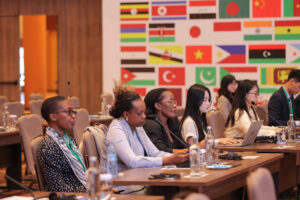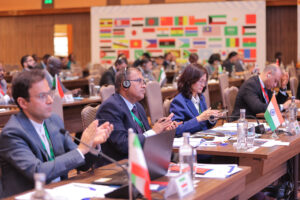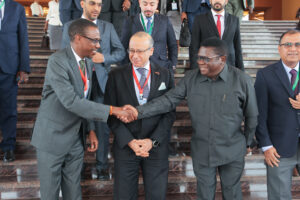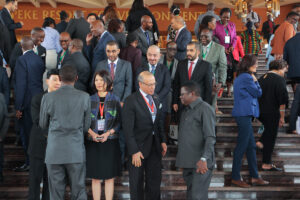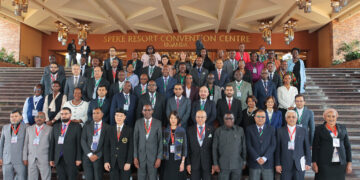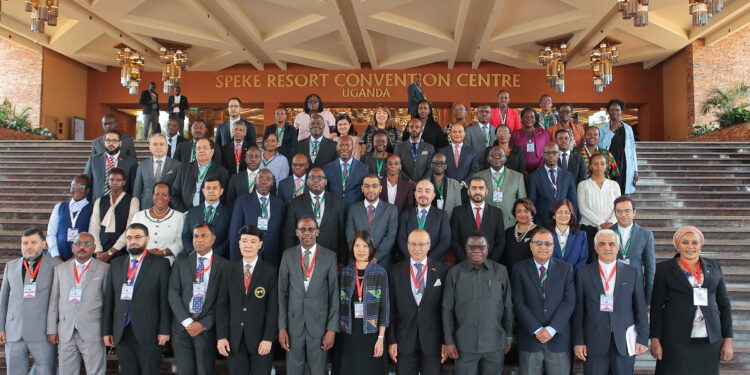Munyonyo – The 63rd Annual Session of the Asian–African Legal Consultative Organisation (AALCO) concluded Friday in Kampala with powerful calls for unity, innovation, and fairness in international law.
Uganda’s Attorney General, Hon. Kiryowa Kiwanuka, serving as President of the 63rd Session, delivered the closing statement that brought together six days of intense deliberations on issues ranging from climate change and cybercrime to maritime law and investment reforms.
“As we come to the close of this 63rd Session here in Uganda, the Pearl of Africa,” Kiwanuka began, “I extend our profound gratitude to all the Member States, Observers, and International Organisations that have attended and actively participated in the deliberations. You have taken time off your busy schedules and dedicated this week to AALCO. For this, I most sincerely thank you.”
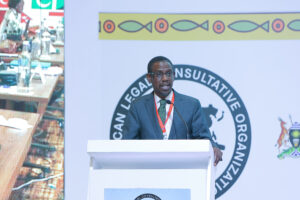
The session, attended by ministers, legal experts, diplomats, and scholars, was marked by high-level debates on the rule of law and the role of Asia and Africa in shaping global legal frameworks. Kiwanuka noted that discussions on the law of the sea, environmental sustainability, asset recovery, outer space, and international trade were particularly significant.
“The emphasis on equitable access to maritime and outer space resources,” he said, “resonates deeply with all member states, given that the sea and outer space are a common heritage of mankind.”
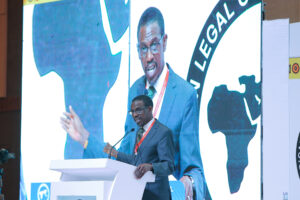
A key theme throughout the week was the disproportionate impact of climate change on developing nations. Delegates urged the adoption of stronger legal frameworks to implement the principle of common but differentiated responsibilities.
Kiwanuka stressed that the world must pursue economic growth while upholding social justice and environmental stewardship. “Reforms to global trade systems must promote fairness and inclusivity,” he said, “ensuring that developing nations are not marginalised in the global economic order.”
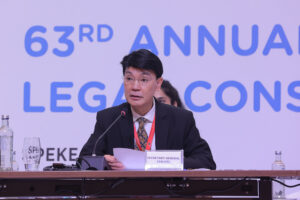
The AALCO Secretary-General, Dr. Kamalinne Pinitpuvadol, echoed this sentiment in his vote of thanks, praising Uganda’s hospitality and the session’s inclusivity. “The range of subjects and the depth of exchange have provided invaluable insight into the evolving landscape of international law,” he said. “This session has reaffirmed AALCO’s pivotal role in strengthening the legal foundations of cooperation between Asia and Africa.”
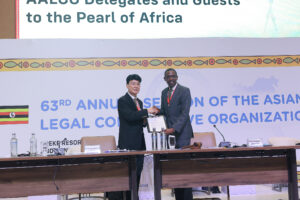
One highlight of the Kampala session was the report by Professor Huang Zhixiong, AALCO’s Special Rapporteur on International Law in Cyberspace. Presenting the findings of the Open-Ended Working Group, he explained that since its establishment in 2015, the group had developed 15 consensual principles on international law in cyberspace, covering issues from sovereignty and cybercrime to artificial intelligence and emerging technologies.
“With the rapid development of digital technologies,” Professor Huang said, “it is timely and appropriate for AALCO to expand its mandate to include artificial intelligence. AI is reshaping global governance and international security, raising complex and novel legal questions.”
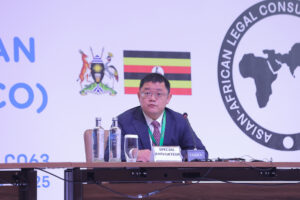
The finalised principles, refined over six meetings in cities such as New Delhi, Tokyo, Bali, and Bangkok, reflect Asian and African perspectives on global digital governance. They emphasise the peaceful use of cyberspace, protection of critical infrastructure, and international cooperation against cybercrime.
Delegates welcomed these principles but insisted they remain non-binding and consistent with UN discussions. As Professor Huang explained, “Our aim is to strike a balance between reflecting international consensus and offering unique contributions from Asia and Africa.”
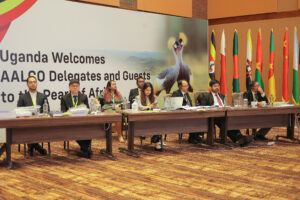
Beyond cyberspace, Kiwanuka lauded AALCO’s broader legacy in shaping international law, citing its role in conventions on the law of the sea, cybercrime, and investment treaties. He noted that AALCO remains “a bridge between Asia and Africa, a bridge to the United Nations, and a bridge to the future of a fairer and more just international legal order.”
As the session closed, Kiwanuka invited delegates to explore Uganda’s natural beauty—from the River Nile to the Rwenzori Mountains—before departing. “Let us leave Kampala,” he urged, “with a renewed sense of purpose, strengthened solidarity, and a firm commitment to build a future defined by peace, prosperity, and justice for the peoples of Asia and Africa.”
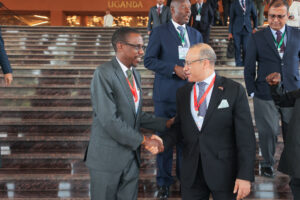
With that, he declared the 63rd Annual Session of AALCO officially closed, as delegates prepared to carry the Kampala resolutions back to their capitals—resolutions aimed at shaping not just laws, but the future itself.
